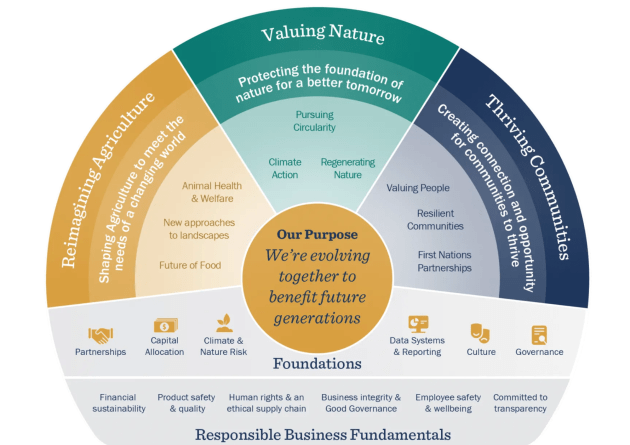The Australian Agricultural Company (AACo) has released its fifth annual sustainability report – highlighting its efforts in a what it calls a “fluctuating social and environmental landscape”. As climate change, biodiversity decline, and population growth affect the environment, AACo says it is finding ways to do its part to support the food system.
AACo has operations across 6.5 million hectares in Queensland and the Northern Territory, or roughly one per cent of Australia’s land mass, and is in its 200th year of operation, something it claims no other Australian company has achieved.
AACo managing director and CEO, David Harris, said that the company takes a broad view of sustainability and focuses on evolving to benefit future generations.
“We have a desire to leave our company in a better position tomorrow than it is today across all aspects of our operation,” said Harris.
“AACo’s size, scale, and role within our industry means we can contribute to shaping the development of legislation in ways we believe are effective for industry.”
Since AACo released its Sustainability Framework in 2021, it has focused on deepening its level of connection with the pillars of the framework, and actioning expansive plans to direct innovation and R&D to make both the company’s and Australia’s food system management more sustainable.
Source: AACo
Investing in preservation and evolution
An important feature of the year for AACo is its investment in the newly founded Zero Net Emissions Agriculture Cooperative Research Centre (ZNE Ag CRC), a federal government funded initiative brokered by The University of Queensland and Queensland Department of Agriculture and Fisheries.
AACo has invested as a Tier 1 partner, the highest level of support, committing to contributing $300,000 over 10 years to help the Australian agriculture industry transition to net-zero food systems.
The company has invested time and resources into assessment of the environments it makes use of as part of the sustainability framework, particularly looking at carbon stocks, methane emissions, deforestation, and resource management.
2024 completes AACo’s second year of its Landscape Carbon by Satellite project, an assessment of soil carbon stocks across the company’s estate. The project, which will be completed in 2025, will allow AACo to prioritise investment in high sequestration potential areas.
Earlier this year AACo also finished its Asparagopsis, or red seaweed, trial, after initially partnering with seaweed manufacturer Sea Forest in 2021 to reduce methane emissions from its cattle. This has been a hot area of research, with several companies working on methane reducing feed – including Rumin8, which just received provisional testing allowances from New Zealand authorities for its additive.
In terms of deforestation, the company has undertaken management assessment in preparation for definitions and guidelines to be finalised for Australia, with an initial low-risk found. As part of this pursuit AACo has been exploring adaptive grazing practices for its livestock, and reviewing habitat health for endemic fauna.
AACo also briefly mentions its continuing commitment to water management strategies, and waste by-product use in regards to recycling assets.
Notable also was the company’s increased production efficiency through its technology-enabled breeding program, which results in a perfectly balanced pool of male and female offspring for its purposes.
With the release of the Australian Conservation Foundation’s Future of Food benchmark report last week finding that almost none of Australia’s top 20 food businesses have begun to assess nature-related impacts, dependencies, and risks in their value chains – with even less disclosing them – the AACo’s commitment to transparency is something that other companies should take note of.
For more in depth information on AACo’s sustainability projects and results for 2024, the full report can be found here.







